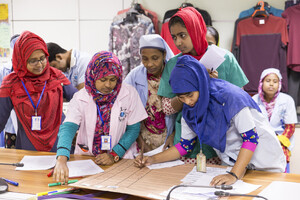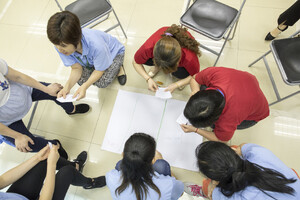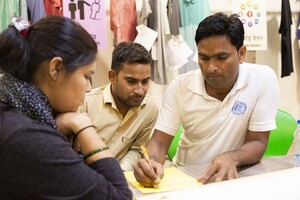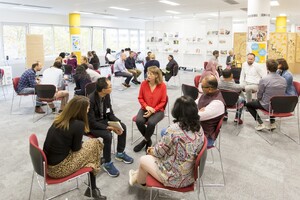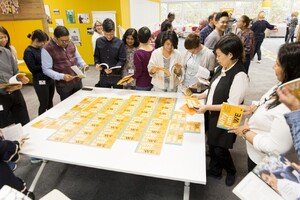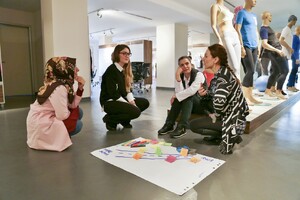Human rights
WE Program
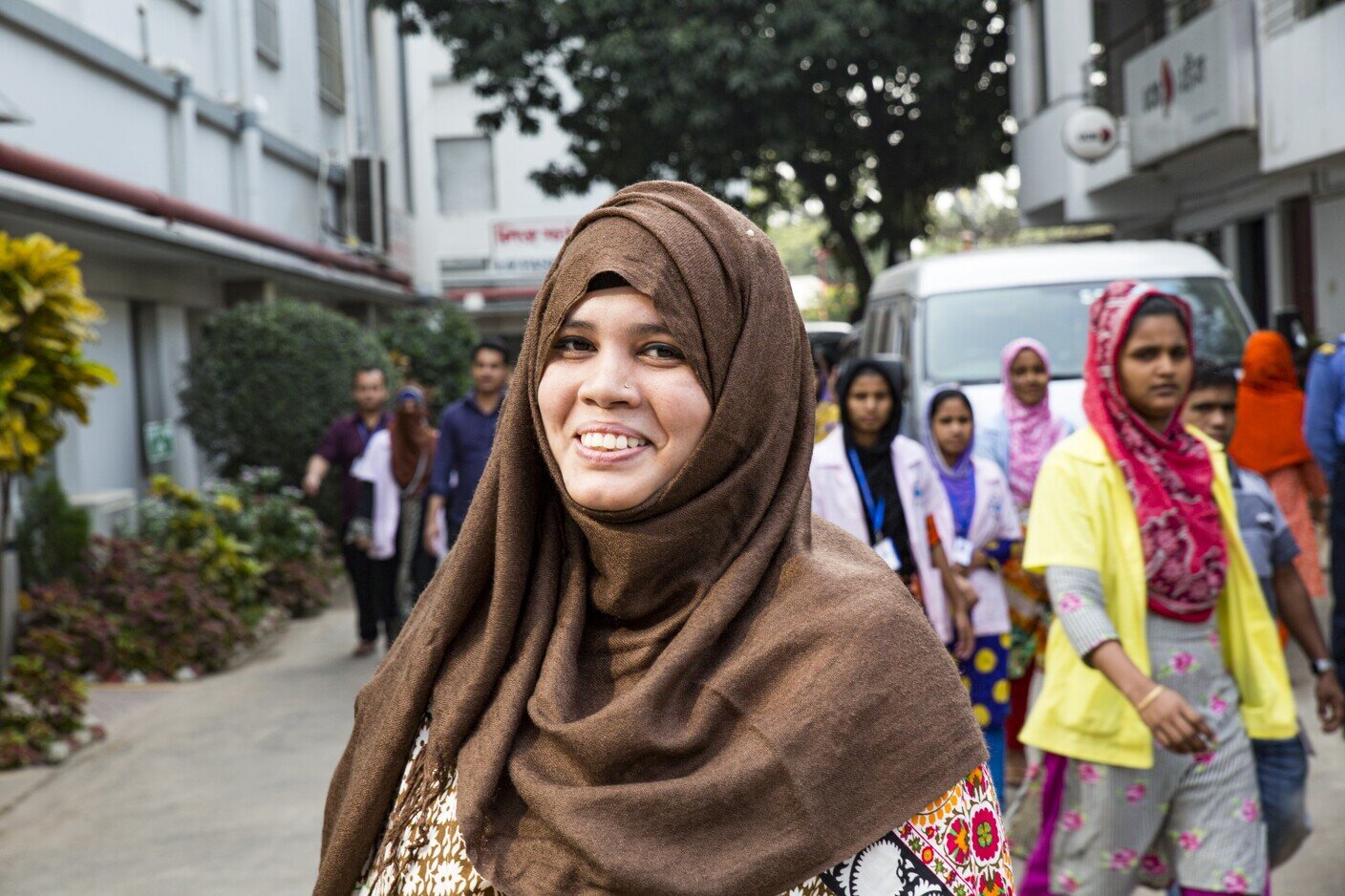
Know your own rights and formulate claims
The WE Programme supports people in the factories of our supply chains in recognizing their own rights and standing up for them.
The aim of the WE Program is to improve working conditions in our supply chains in a sustainable and self-sustaining way. It supports our producers in complying with the requirements of our Supplier Code of Conduct (SCoC) and going beyond them.
How exactly does WE work?

Human rights are complex
We do not rely on simply checking our suppliers through audits. Recognizing and preventing sexual harassment requires different approaches than fire safety measures. Human rights are not just a result of facts, but are based on relationships. The key to improvement therefore lies in dialog between all the people involved: It is our way of changing relationships and ways of working so that human rights are protected. In 2008, at the beginning of the WE program, this approach was a real innovation.
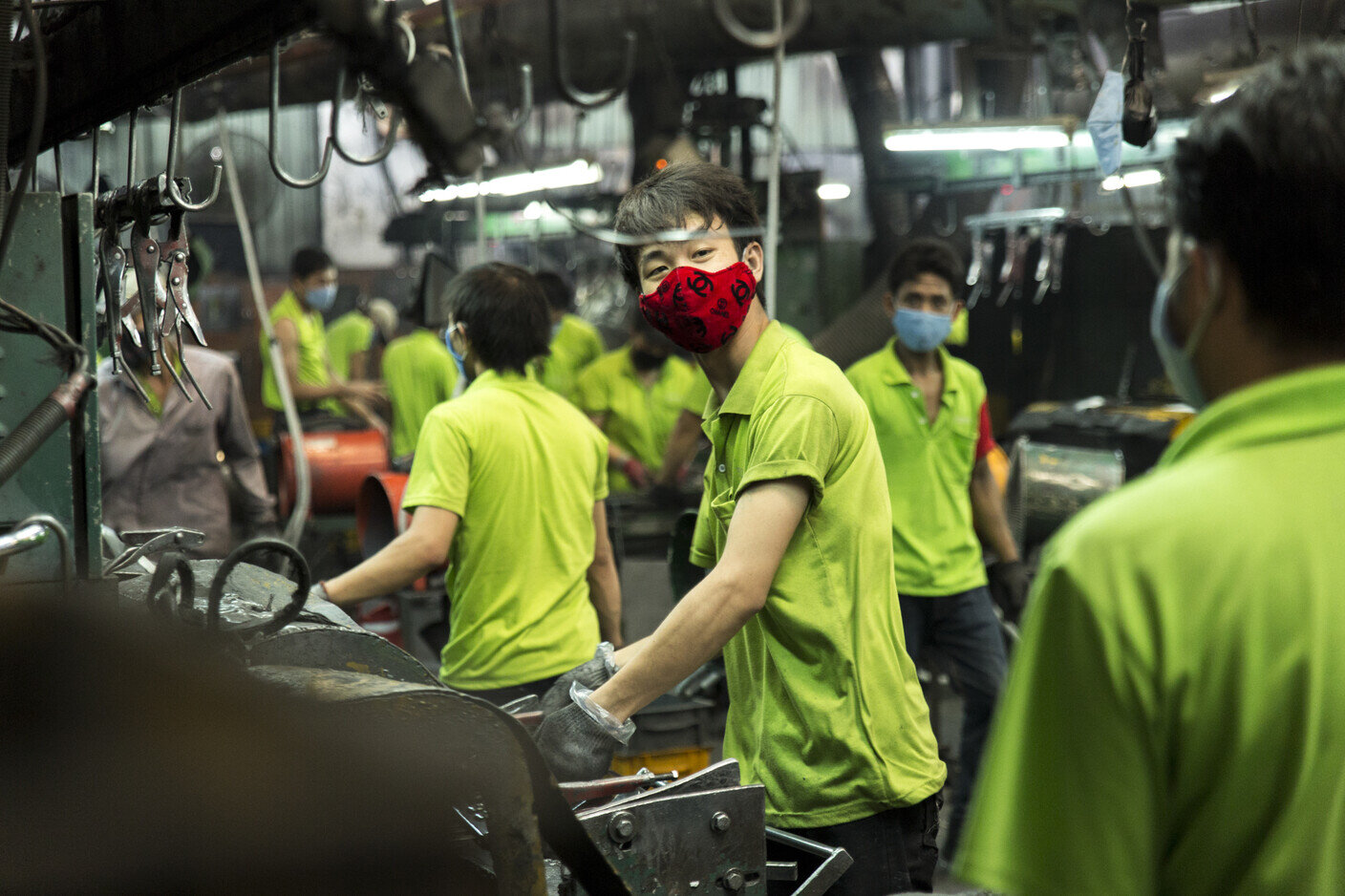
The human rights areas in WE
WE arose from our assessment of human rights risks in our non-food supply chains and is based on the standards of the International Labor Organization (ILO) and international human rights conventions. The program focuses on the areas with the greatest need for improvement: child labor, violence, discrimination, employment conditions, wages, working hours, occupational health and safety, freedom of association, worker representation and communication channels.
The WE program looks at various human rights issues from two perspectives: the forced labor perspective and the gender perspective. The forced labor perspective helps us to identify practices and human rights violations that may be indicative of forced labor. The gender perspective allows us to systematically identify and address gender-specific issues such as discrimination, violence and health care needs.

The factory as a starting point
The WE program does not follow a fixed pattern. It is created anew in each factory, depending on the problems it has or which are specific to its sector. As soon as WE starts in a factory, the participants define the problems that are currently most urgent for them. In this way, they determine the order in which they want to work on the human rights areas. We make sure that workers and their representatives as well as factory managers always participate in WE together.
The program runs for at least two years in each factory. This means that dialog sessions take place regularly and are tailored to the situation and needs of the factory.
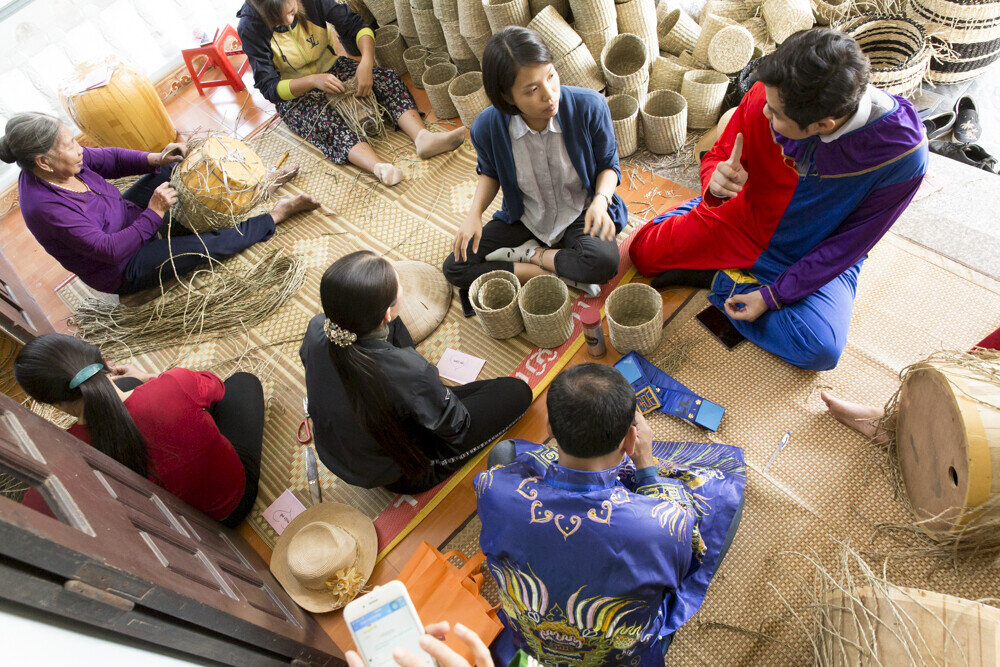
Trusting dialog
WE is not a training program - and for us, dialogue is not just about people talking to each other. It is a structured process to create a desirable future and invites participants to take an active part in it. To create a high level of safety for them, WE works with local teams of specialized experts who guide and accompany this process. They are our WE facilitators.
Together with the WE facilitators, participants explore what their workplace and their relationships with each other should look like in the future, instead of narrowing their focus solely on the existing problems. This approach opens up new ways for them to change their reality. We support them in working out all the solutions together. The process takes time. At the same time, our experience shows that this is the best way for those involved to implement the necessary changes in their workplace.

Where is WE?
The WE program operates in factories in Bangladesh, China, India, Cambodia, Pakistan, Taiwan, Turkey and Vietnam. The factories produce clothing and textiles, leather goods, jewelry, electronics, furniture, metal goods and kitchen utensils for Tchibo and other customers.
Challenges that we are continuously working on
Even though we have continued to develop the program over the years, some challenges remain - these are also known to other experts in the field of human rights, transformation and development work:
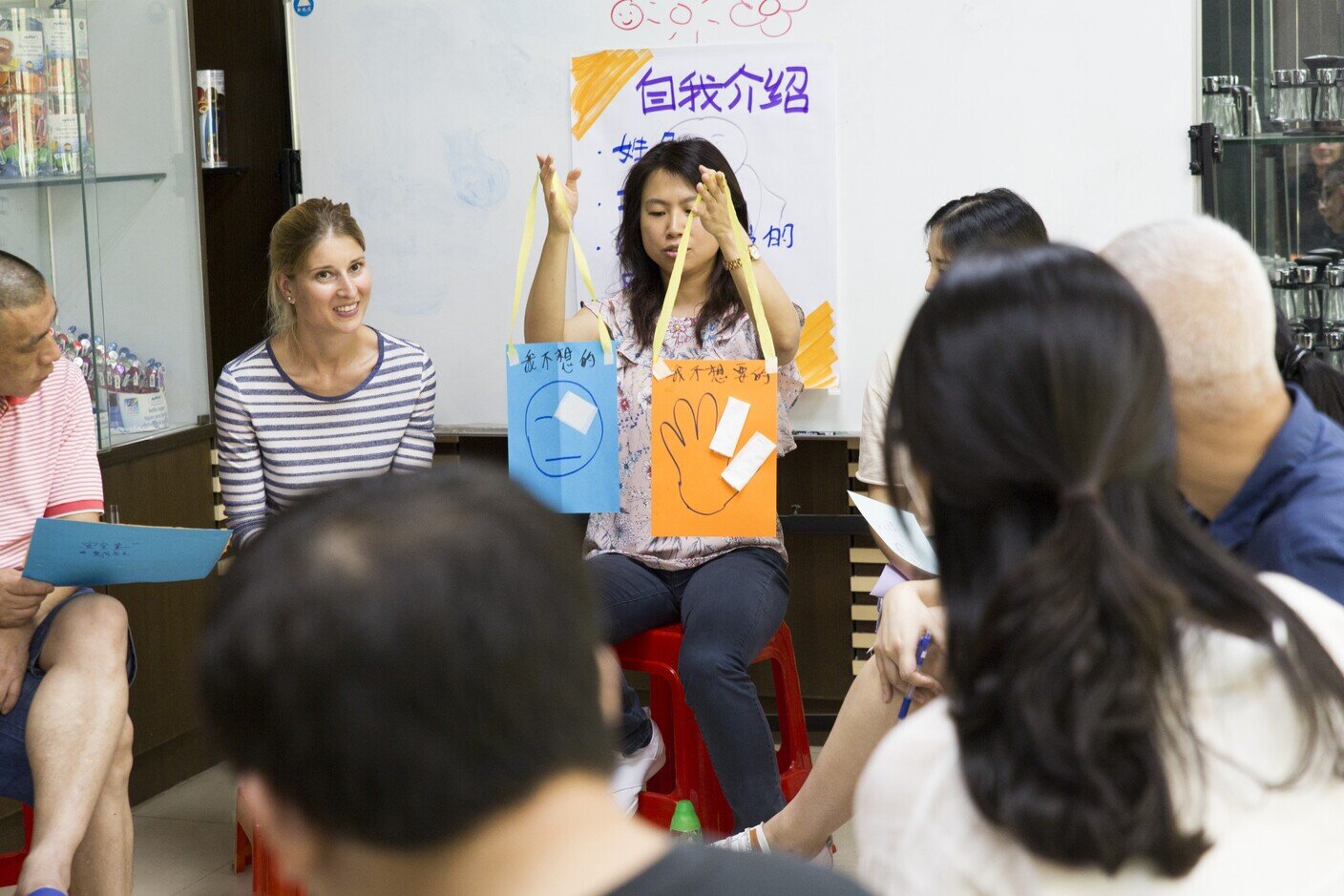
Permanent anchoring of the WE approach in the factories
We strive to ensure that the WE approach and thus the continuous improvement of working conditions are permanently anchored in the factories. At the same time, we find that the application of the methods and the work on them fade into the background or are even forgotten if we do not accompany the work. This can also happen in factories that have achieved good improvements in the process. There can be various and multiple reasons for this: lack of commitment on the part of company and factory management, other priorities in day-to-day production, staff turnover, including in middle management.
Our approach: We support factories in all countries continuously and individually, tailored to their respective situation and needs. We are committed to establishing sustainable processes in the factories, strengthening employee representatives and involving trade unions.
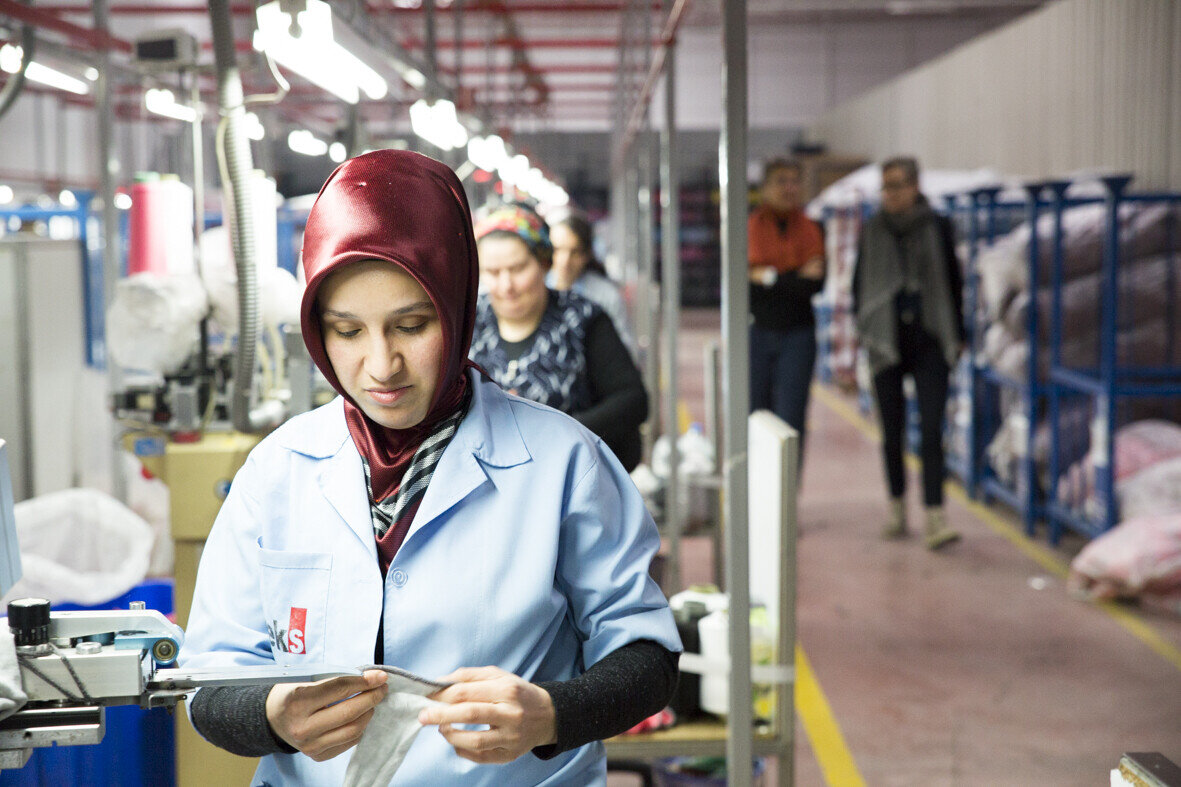
Commitment of the company management
In order to achieve as many lasting improvements as possible in the factories, the consent and support of the company management is required. This is not always possible - partly because some of the companies involved are large and their management is based in countries other than the factory locations.
Our approach: We involve our purchasing colleagues to highlight the importance of the program. The first activity in a factory is aimed at the factory management; they are regularly informed and involved in the process.
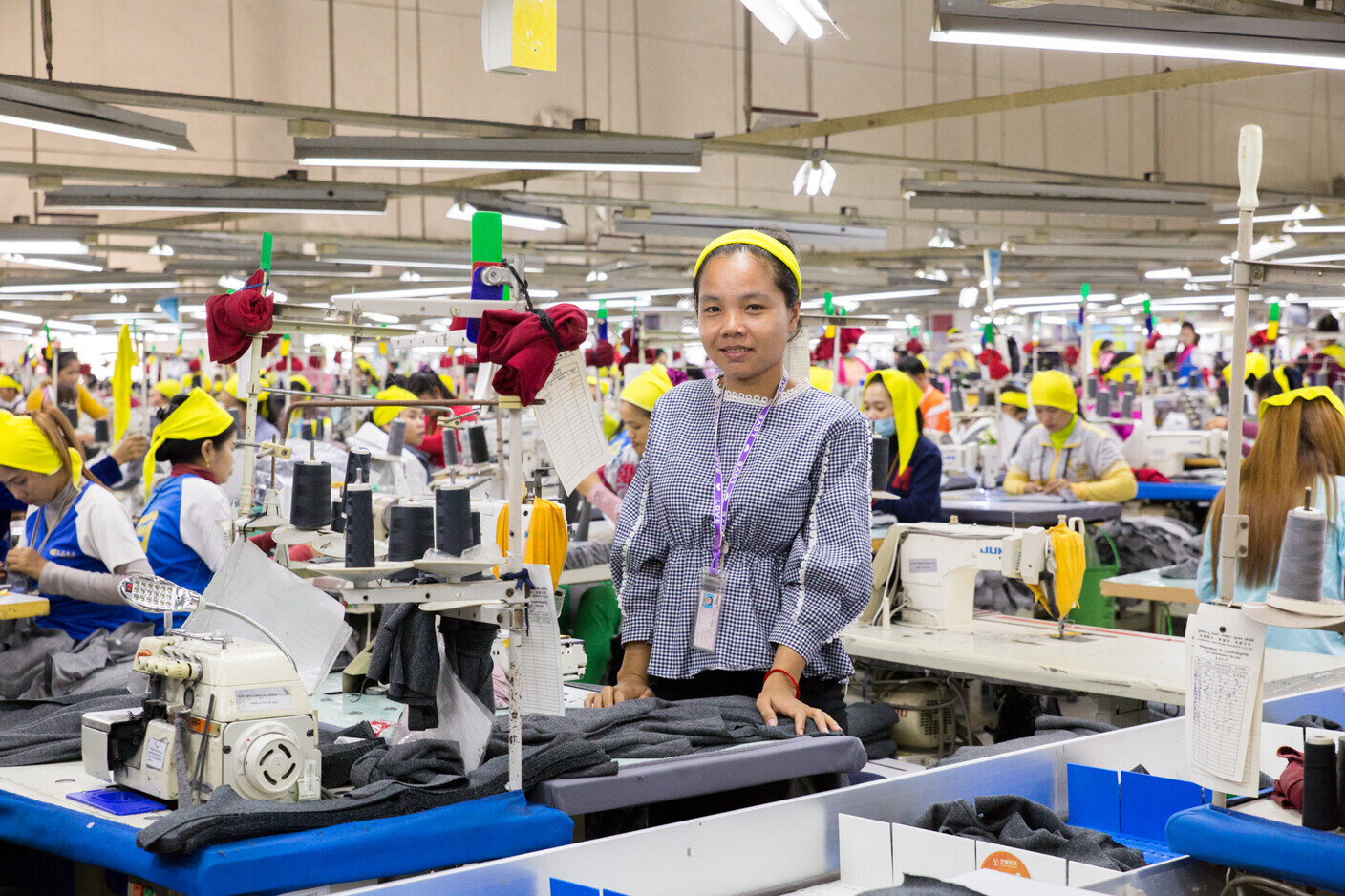
Involvement of the entire workforce
Many factories in Asia have several thousand employees. It is therefore not possible for us to involve all employees directly in the program. At the same time, the aim is to ensure that as many workers as possible are informed about their rights and benefit from the improvements.
Our approach: We focus on establishing processes in the factories, strengthening employee representatives and involving trade unions. We carry out activities aimed at raising the visibility of labor, such as poster parades in the canteen.
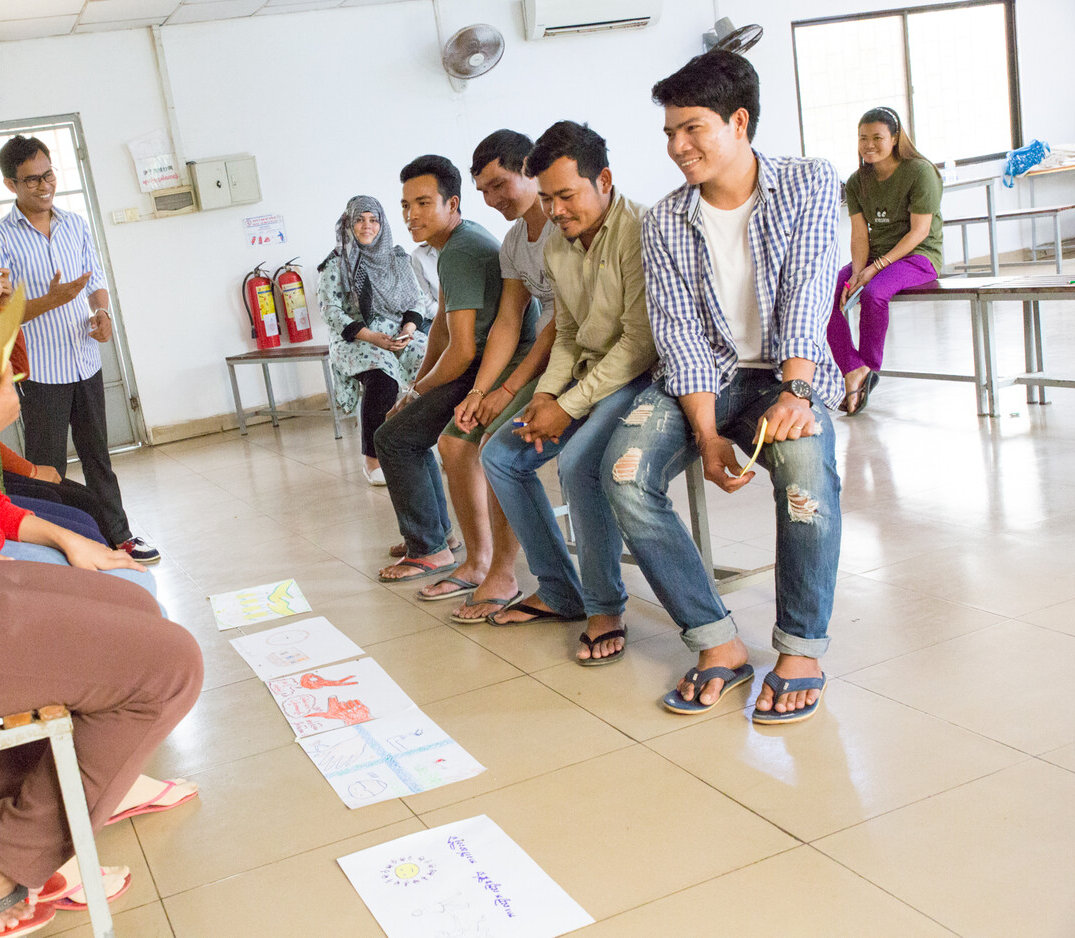
Impact measurement
We experience that the WE program works - often in the form of changed behaviour. This often cannot be depicted using classic, quantitative impact measurement, which is based on simple impact mechanisms (activity A causes B). In our work, we have found that cause-effect relationships are often more complex. We are therefore looking for new forms of impact measurement, in which we primarily incorporate the stories of those involved and their experiences.
Our approach: Instead of relying on traditional impact measurement, the WE program works with OASIS, a tool specifically designed to identify behavior change and ask ourselves if we are moving in the right direction. Unlike most monitoring and evaluation tools, OASIS doesn't give us answers. Instead, it allows us to ask more informed questions and plan our next meaningful behavior change actions.
Learnings & milestones of recent years:
Since 2024, 18 factories have been added to the program. By May 2025, a total of 458 factories were involved and more than 400,000 workers and managers have participated in WE activities since 2008.
Start of the WE program
Pilot phase with the Gesellschaft für Internationale Zusammenarbeit (GIZ)
Start of the WE program
Pilot phase with the Gesellschaft für Internationale Zusammenarbeit (GIZ)
Refocusing
As is not uncommon with expansions, we realize at this point that we have focused too much on quantity rather than quality in the meantime: We are bringing human rights issues and WE values (dialog, empowerment and co-creation) back into focus.
Refocusing
As is not uncommon with expansions, we realize at this point that we have focused too much on quantity rather than quality in the meantime: We are bringing human rights issues and WE values (dialog, empowerment and co-creation) back into focus.
WE in the COVID-19 pandemic
Depending on the pandemic situation, the WE Facilitators carry out the activities with workers and managers online, in a hybrid form between online and on-site or in person in strict compliance with national hygiene regulations.
WE in the COVID-19 pandemic
Depending on the pandemic situation, the WE Facilitators carry out the activities with workers and managers online, in a hybrid form between online and on-site or in person in strict compliance with national hygiene regulations.
The WE program is detached from Tchibo
After Tchibo has implemented the programme independently for the past 15 years, it will be continued separately in order to open it up to interested companies and organizations. Nevertheless, it remains an integral part of Tchibo's social commitment.
The WE program is detached from Tchibo
After Tchibo has implemented the programme independently for the past 15 years, it will be continued separately in order to open it up to interested companies and organizations. Nevertheless, it remains an integral part of Tchibo's social commitment.
Expansion of WE to Taiwan
In line with our sourcing strategy and our commitment to human rights, we expanded the WE program to Taiwan in April 2024, reaffirming our commitment to improving working conditions throughout our supply chain.
Expansion of WE to Taiwan
In line with our sourcing strategy and our commitment to human rights, we expanded the WE program to Taiwan in April 2024, reaffirming our commitment to improving working conditions throughout our supply chain.
Integration into the Tchibo supply chain
We have been rolling out the WE program since 2012. In addition to the countries in the pilot phase, Bangladesh, China, Laos and Thailand, we are also rolling out the WE program in Ethiopia, India, Cambodia, Turkey and Vietnam. By the end of 2015, we had integrated 323 factories.
Integration into the Tchibo supply chain
We have been rolling out the WE program since 2012. In addition to the countries in the pilot phase, Bangladesh, China, Laos and Thailand, we are also rolling out the WE program in Ethiopia, India, Cambodia, Turkey and Vietnam. By the end of 2015, we had integrated 323 factories.
Strengthening the teams on site
We are continuing the changes initiated in 2016 and at the same time focusing on strengthening and networking the local WE teams.
Strengthening the teams on site
We are continuing the changes initiated in 2016 and at the same time focusing on strengthening and networking the local WE teams.
Bangladesh: Introduction of the first occupational accident insurance
In addition to Tchibo, five other companies are supporting the Employment Injury Insurance Scheme (EIS) as a pilot project. It is a social protection system that provides compensation for medical treatment and rehabilitation services as well as for loss of income due to accidents at work and occupational illnesses.
Bangladesh: Introduction of the first occupational accident insurance
In addition to Tchibo, five other companies are supporting the Employment Injury Insurance Scheme (EIS) as a pilot project. It is a social protection system that provides compensation for medical treatment and rehabilitation services as well as for loss of income due to accidents at work and occupational illnesses.
Trauma support sessions for earthquake survivors in Turkish factory
After the devastating earthquake in February 2023, the WE program offered trauma support sessions for factory workers and managers in Hatay, Turkey. The focus was on psychosocial support and promoting resilience. Those affected were helped to process their experiences and rebuild their lives in a supportive environment.
Trauma support sessions for earthquake survivors in Turkish factory
After the devastating earthquake in February 2023, the WE program offered trauma support sessions for factory workers and managers in Hatay, Turkey. The focus was on psychosocial support and promoting resilience. Those affected were helped to process their experiences and rebuild their lives in a supportive environment.
Fair Price Shops
In Bangladesh, so-called fair price stores have been set up in eight factories over the last three years. There, workers can buy basic foodstuffs at a lower price than the usual retail prices and thus have lower expenses overall.
Fair Price Shops
In Bangladesh, so-called fair price stores have been set up in eight factories over the last three years. There, workers can buy basic foodstuffs at a lower price than the usual retail prices and thus have lower expenses overall.
